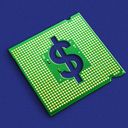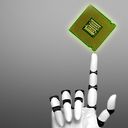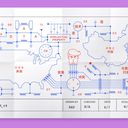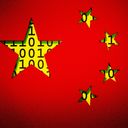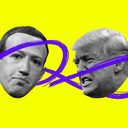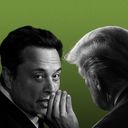Why tariffs are kryptonite to the AI business
The AI industry's two-and-a-half-year investment spree is about to enter a new phase of turmoil and doubt thanks to President Trump's massive tariffs.
Why it matters: Key industry players backed Trump or made nice with him after his election win, but the centerpiece of his economic policy makes an AI slowdown — or even a crash — much more likely.
The big picture: The AI giants need cheap data and cheap energy to keep building bigger models, and mountains of cash to pay for it all.
- Recent months have seen a tidal wave of deals in the tens of billions of dollars — from OpenAI's latest investment round and Stargate project to Elon Musk's most recent xAI fundraise — based on forecasts of beyond-the-horizon growth in demand for AI services.
Yes, but: In the trade-war era kicked off by Trump's tariffs, capital will move more cautiously and growth will slow or vanish.
- The flood of billions into AI model training and infrastructure was always understood to be a big gamble on an impressive technology that hasn't yet proved its broad business value.
- Last year, some analysts began to question the industry's "incineration" of cash.
In the new post-tariff world, expect many more investors to watch and wait rather than toss more billions on the fire.
- Meanwhile, AI companies newly challenged to drum up revenue will have to do so in a market that's hurting, or even in recession.
The best case for AI companies is that their products will thrive as customers seeking savings in a downturn deploy AI and automation to try to cut costs.
- For that to work, AI will have to deliver on that promise much more widely than it has so far in a handful of realms like software development and customer service.
Between the lines: Some in the MAGA camp see AI as a key player in their project to restore the heyday of domestic U.S. manufacturing.
- Trump's Commerce Secretary, Howard Lutnick, described this vision on CBS' "Face the Nation" Sunday.
- "The army of millions and millions of human beings screwing in little, little screws to make iPhones — that kind of thing is going to come to America. It's going to be automated. And great Americans, the tradecraft of America is going to fix them, is going to work on them. There's gonna be mechanics, there's gonna be HVAC specialists, there's gonna be electricians."
- "The tradecraft of America, our high school educated Americans, the core to our workforce, is going to have the greatest resurgence of jobs in the history of America to work on these high-tech factories."
Lutnick isn't totally clear here. But it sounds like he's saying iPhone manufacturing will move to the U.S. but will be automated.
- Americans won't work in the factories like their Chinese predecessors tightening all those tiny screws; instead, Americans will work on the factories, building and maintaining them.
- Put aside what Apple experts say about the impossibility of building iPhones in the U.S. without tripling their price. Just consider what this scenario actually means for American workers.
- You can't have "the greatest resurgence of jobs in the history of America" if you're automating all the manufacturing.
The more likely scenario is a broad economic slowdown, with the AI industry, along with the rest of the U.S. economy, mired in the doldrums of uncertainty and fear.
- A tariff-induced inflation jolt, a trade-war-fueled recession, or both together would radically limit the runway for AI startups and dry up the dollars flowing into AI research.
The bottom line: The biggest companies — Microsoft, Google, Apple and Meta — all have enough cash flow and reserves to weather such a storm. Not so for the rest of the AI industry.




